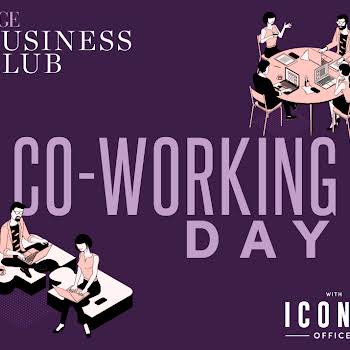
By Colette Sexton
28th Sep 2018
28th Sep 2018
Colette Sexton, news correspondent at The Sunday Business Post, on why being attractive is an asset when it comes to getting hired.
Good news if you are a tall, thin, blonde, make-up wearing exercise lover: you are likely to make more money than your co-workers.
There have been many, many studies conducted on the various ways that our looks affect our pay. A piece by Aaron Gouveia from Salary.com brought a few of them together. He pointed out that for every inch of height, a tall worker can expect to earn an extra $789 per year, according to 2004 study from the University of Florida. Obese women are paid $8,666 a year less a year than co-workers who are not obese, according to a George Washington University study. White women who are blonde make 7 per cent more than other women, according to a 2010 study from the Queensland University of Technology. According to the Journal of Labor Research, workers who exercise regularly earn 9 percent more on average than employees who don’t work out. A study in the American Economic Review found that women who wear make-up can earn more than 30 per cent more in pay than those who don’t.
While these are all American examples, a recent study in Ireland found that three-quarters of people here (72.7 per cent) believe that way you look affects your career prospects. The vast majority of professionals in Ireland (81.3 per cent) believe that the way you look can affect your chances of landing a job, according to the study from CV Library. Nearly half of respondents think that looks can impact people’s confidence; over 40 per cent believe it can impact the way your co-workers see you; and almost one third believe it can affect your chances of a promotion. One quarter thinks that your appearance could affect your negotiating power; nearly 20 per cent think it can impact how much your boss likes you and 6.3 per cent think it can affect your salary.
With all of that evidence, should you change your appearance for a job? Half of the respondents said they would not, and I am inclined to agree with them. You should not have to change who you are for a job.
If you are not a tall, thin, blonde, make-up wearing, exercise-lover then you can always comfort yourself with the fact that those who are too good looking also lose out. A study based on headshots included with CVs by Ruffle and Shtudiner found that attractive women are less likely to receive an interview than “plain” women, while appearance had little impact on the likelihood of males getting an interview. There really is no winning in this game.
On the plus side, many companies are starting to recognise unconscious bias in their interviewing processes and implementing procedures to combat it. These include interviewing by phone; removing names and photos during the initial screening process; having an interview panel of people from different demographics, and using technology to vet candidates.
So don’t go running off to dye your hair blonde. Remain true to yourself, and hope that your skills and experience will stand to you.























